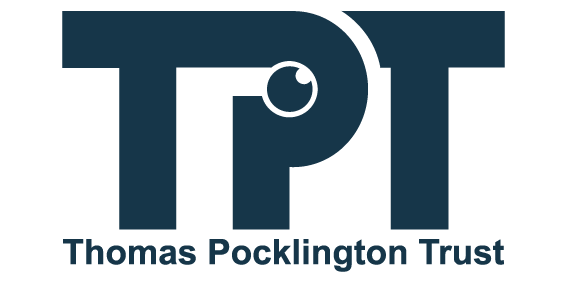Are you due to complete your university course this year or is 2022 the year for a career change?
We spoke to Helen Mitchell, one of our trustees who has a wealth of HR experience, to get some practical tips on honing down career options and how to reach and impress prospective employers. This is as relevant for people hunting for their first job role as those looking to make a career change.
What advice would you give to someone who is due to finish a course and is unsure about their career path?
1. Firstly, consider the types of careers that would inspire you and put together a list to help you establish why. The list will help you understand the rationale behind your interests.
2. Next look at a selection of example job descriptions and person specifications so you can analyse the similarities and differences. Take time to drill down into the criteria specified within the job description.
3. Next establish whether your skillset is a good match for this or if there may be an opportunity to learn new skills (e.g. through audiobooks, exploring YouTube channels, online resources, learning a specific skill via practical classes or taking specific training courses).
4. Seek career advice. It can help you better understand a career path, how to approach the sector and consider whether you could do more to develop and showcase your skills.
5. Review the types of roles that are of interest to you and why. Create a list of target employers – the list could be broad, specific to an industry, or may be more general (for example if you are looking to gain exposure to a role in a corporate function such as finance, legal or HR).
6. Connect with your network. Use connections that might help you gain insight into specific companies and better understand the scope of certain roles.
7. Shape your CV to meet the criteria as outlined on the job description and person specification of the positions you would want to apply for. Use the CV templates and tips offered by TPT and also get in touch with the Employment Team at TPT who can help with CV writing.
8. Write a cover letter. TPT also has some top tips on cover letters to get you started.
9. When you are happy with your CV and your cover letter, you are ready to start applying for jobs.
How can you access companies of interest?
LinkedIn is an excellent platform to showcase your skillset and aspirations.
Use your network – are there any connections you have that can help you gain access to particular jobs or companies of interest? You may want to also consider opportunities you could use to broaden your network – such as virtual networking events, conferences, or forums.
Identify recruitment agencies that could open doors by introducing you to individuals within a particular company. Remember it is within the interest of the recruitment agency to provide you with guidance and direction. Recruitment agencies work for candidates for free and will receive commission from the employer if they successfully place you as a candidate into a role.
A work experience placement can also be a great way to explore a career you might want to pursue. Even if the placement is short, it will give you some insight.
TPT’s job search tips provide a list of useful job search websites and apps and our Student Support team has created advice on finding and securing work experience.
How can you prepare for different types of interviews?
Anticipate the types of interview questions and consider how you will approach your answer. Align your answers to the specific role. Remember, the recruiter is on your side.
Overall, there are many types of interview questions and formats. Some interviews may be more casual, appearing as a conversation with informal questions and high-level, non-specific questions. Other interviews may be competency-based and assessed through scoring. Interview questions which are not competency-based can sometimes be the most difficult.
Prepare for the general questions that might be asked at the start of the interview, so the panel can learn more about your experience and motivations for applying. For example, interviewers might open by asking questions such as “tell me about yourself?” or “what motivated you to apply for the job role?” or “talk me through your CV.” It’s recommended to be prepared to discuss why you are interested in the job role, career path and your short-term career aspirations.
It’s a good idea to be prepared for any challenging questions that might arise such as how to approach problem-solving scenarios, how you have resolved conflict, or brought people together to achieve a common goal. Be prepared to talk about your strengths and weaknesses (turn your weaknesses into strengths, opportunities and positive attributes).
How should you prepare for a competency-based interviews?
Spend time identifying how your skills and experience align to the requirements of the role. You can then consider some of the questions that might be asked. Start by reviewing how the skills and experience outlined on your CV are a good match to the job description and person specification. Remember your CV helped you secure the interview in the first place.
The STAR Model will help you prepare answers to competency-based questions. The STAR model consists of the four components of Situation, Task, Action and Result. When approaching the STAR Model firstly describe the situation (an example of when you faced a challenge), next describe the task (this could involve what you were responsible for during the situation), then describe the steps that you personally took to meet the challenge and then finally describe the result or outcome (for example how you overcame the challenge, what you accomplished and what you learned).
Any final thoughts to reach and impress employers?
Whether you are preparing for your first interview, looking to improve your interviewing skills or reminding yourself as to how to present yourself during an interview – always practice. Practicing will not only help you develop your confidence, but it will also enable you to stand-out from other candidates.
During the interview you want to show your passion for the role, enthusiasm for the company and provide examples of how your skills, knowledge and experience will make a difference to the team. Remain calm and professional during the interview.
At the end of the interview, always thank the interviewer for their time. Leave the interview on a positive, professional note. Let the interviewer know they are welcome to reach out to you if they have any follow-up questions.
Lastly, I would recommend sending a follow-up thank you email after the interview to formally thank the interview panel for their time while highlighting why the role is a good fit for your skills, experience, and interests. Be specific while keeping the email concise and straight to the point. The thank you email will help you remain at the forefront of the interviewer’s mind and hopefully will result in a job offer.
Read TPT’s tips for interviews.







